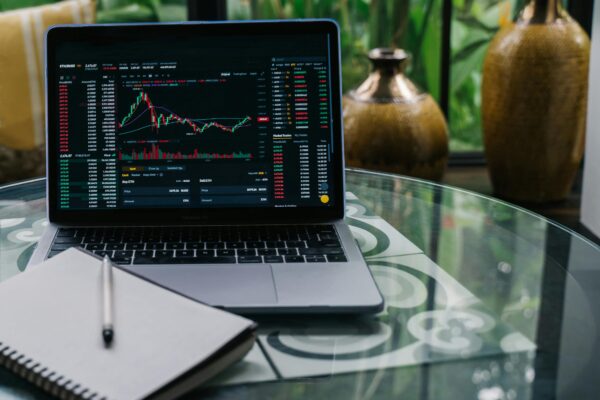
6 Wealth-Building Lessons from Khadijah (RA) Every Muslim Should Know
03 December 2025 8 min read


Haider Saleem
6 min read
Last updated on:
Islamic savings accounts are one of the best ways to grow your money in a halal way. They let you put your hard-earned savings to work ethically while often offering better returns than mainstream banks. And the good news? They are open to Muslims and non-Muslims alike.
In this guide, we’ll cover everything you need to know about Islamic savings accounts in the UK.
Unlike conventional savings accounts, Islamic savings accounts do not pay interest. Instead, Islamic banks grow your money through Sharia-compliant investments, often by financing Muslim home buyers.
They offer an Expected Profit Rate (EPR) instead of a guaranteed interest rate which is based on profits from real investments. While in theory the rate isn’t guaranteed, UK Islamic banks have always paid the advertised EPR. They wouldn’t have a business or any credibility if they didn’t so there’s a very very low chance that will change.
Importantly, Islamic banks avoid investing in prohibited industries such as alcohol, tobacco, or gambling. Instead, they typically invest in commodities, property, and Islamic mortgages / home finance products.
Islamic savings accounts consistently offer highly competitive returns, often among the best in the market. That’s because Islamic banks can’t borrow cheaply like conventional ones. Instead, they rely on customer deposits and must pay more to attract savers. In fact, Sharia-compliant accounts frequently appear near the top of savings rate tables.
And it is not just Muslims who are taking advantage. It was revealed in the Telegraph that 80% of all fixed-term deposit customers of Al Rayan Bank (the largest Islamic bank) were not Muslim. This shows that many savers choose Islamic banks simply because the rates are so attractive.
The answer lies in the way banks get their hands on money. You see, banks make money by giving it out and then making a return on that. But to give money out you need to have money.
Conventional banks look for the cheapest possible place they can borrow money. This is the interbank market where you can borrow at as low as 4%. They borrow it for cheap and then sell it for higher. They can afford to give a mortgage out at 4.5% per annum and still make a tidy profit.
Islamic banks cannot borrow on the interbank market as that is an interest-based loan. So they are forced to look elsewhere. Enter the savings account.
Because Islamic banks are much more desperate to get your money – as it is their only option – they offer much higher rates to ensure you go with them. They then give that money out to Muslim home purchasers at around 5-6% and make a profit.
Yes, as Islamic banks in the UK are regulated by the Prudential Regulation Authority (PRA) and the Financial Conduct Authority (FCA) just like conventional banks.
Savers are also protected by the Financial Services Compensation Scheme (FSCS). This gives you a protection limit of £85,000 (or £170,000 for joint accounts) per authorised firm. Note though that some Islamic savings account do not offer joint accounts.
However, check yourself before you open an account and read the T&Cs to ensure you’re protected. You can also see which banks are authorised firms on the Bank of England website.
Also, ensure your money is protected by checking if you’re within your limit along with money held in your other bank. Some banks are part of the same authorised firm. Read more on the FSCA website.
Yes, Islamic savings accounts are halal because they avoid riba (interest). Instead of paying interest, Islamic banks use your deposits in Shariah-compliant activities such as home financing, property, or trade. Your return comes as an Expected Profit Rate (EPR), which is based on actual profits rather than a guaranteed interest payment.
Islamic banks also avoid funding prohibited industries like alcohol, gambling, or tobacco. In addition, their products are reviewed and approved by a Shariah board of qualified scholars. You can usually find details of the Shariah board on the bank’s website, and if in doubt, you can always contact the bank directly to confirm.
This structure makes Islamic savings accounts a practical halal alternative to conventional savings accounts while still offering some of the most competitive returns in the UK market.
Current providers in the UK include:
Let’s focus on the easy access and 1 year fixed-term deposit accounts for now. Below are the best offerings at the time of writing (Sept 2025):
| Provider | Easy access | 1-year fixed |
| Al Rayan | 3% | 4.35% |
| Gatehouse Bank | 3.9% | 4.2% |
| BLME | – | 4.2% |
| QIB | 3.85% | – |
| KFH | – | 4.33% |
| Habib Bank Zurich | – | 3.9% |
When shopping for an account, you need to look out for:
You need to consider which type of account to open. This will depend on how quickly you would like to access your money.
These types of accounts allow you to withdraw money earlier:
Check the Expected Profit Rate (EPR) carefully. A higher rate usually means better returns, but always confirm whether it is fixed or variable. Some accounts will lock the EPR for the whole term, while others may review it annually.
Some accounts pay profit monthly, while others only pay it at maturity. Monthly payouts may be useful if you want a regular income stream, while maturity payments could work better if you prefer a lump sum at the end.
Each Islamic savings account has its own deposit rules. Some accounts require as little as £500 to open, while others may need £5,000 or more. There may also be upper limits, so check that the account suits your savings goals.
Islamic savings accounts are a safe and halal way to grow your money. They avoid interest, are signed off by Shariah boards, and often deliver some of the most competitive returns in the UK market. With FSCS protection up to £85,000, they are just as secure as conventional banks while being more ethical.
When choosing an account, make sure you understand how quickly you can access your money, what profit rate is being offered, when it is paid, and the deposit requirements.
If you want to go one step further than saving, you can learn more about halal investing and how to build a diversified portfolio by downloading our free Halal Investment Checklist; it’s a practical, step-by-step tool to get you started. Also join the conversation and share your thoughts in the comments below.
If you are looking at investing your money directly, you should consider our platform Cur8 Capital which provides access to Sharia-compliant, institutional-grade investments in real estate, private equity and fixed income.

03 December 2025 8 min read

26 November 2025 6 min read

26 August 2025 7 min read
Leave a Reply